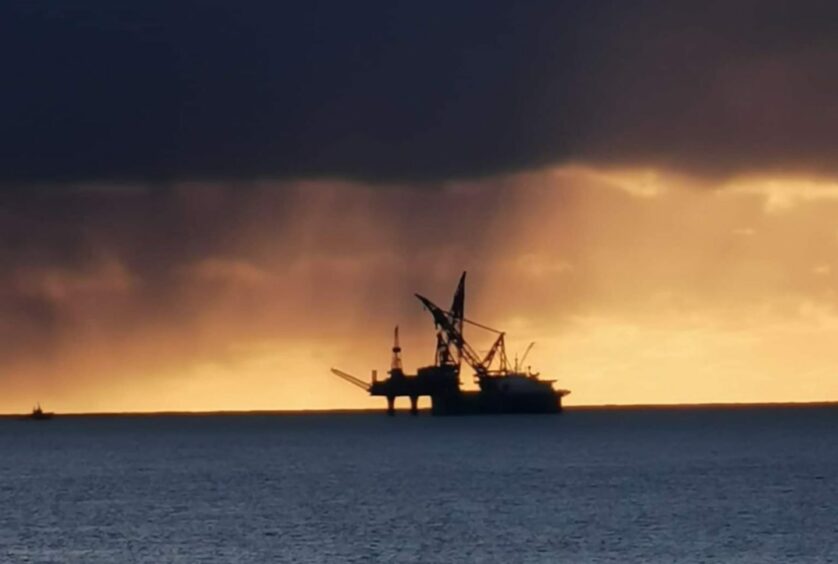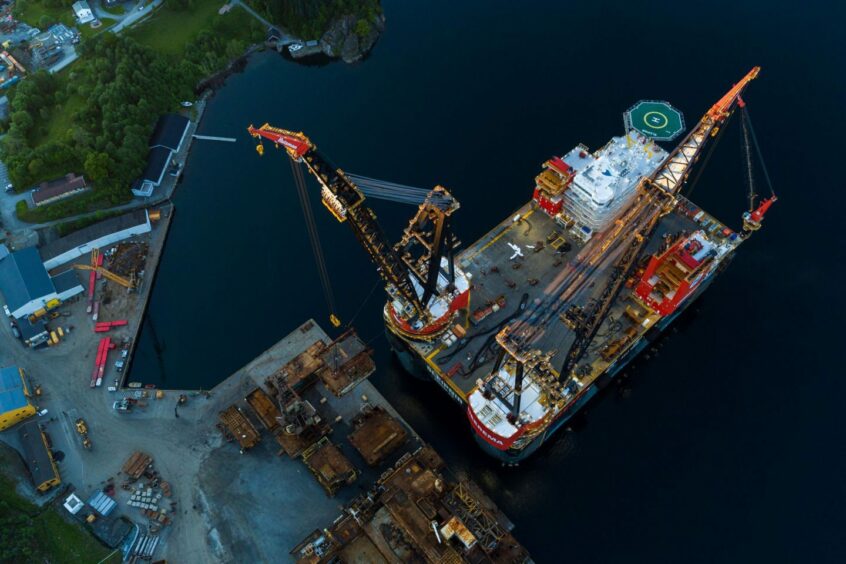
Doubt has been cast over decommissioning plans for Fairfield Energy’s Dunlin field, as UK regulators walk back support to leave key pieces of oil and gas infrastructure in place.
Fairfield, which operates Dunlin, had sought a “derogation” to the Ospar treaty – the marine environment accord which governs environmental protections in the north-east Atlantic – after UK regulator OPRED backed a similar move from Shell to leave legs and oil storage cells from its Brent field in the sea.
Yet both strategies are now in doubt after UK representatives confirmed a shift in position at an Ospar meeting in Berlin in March.
Since 2019 UK industry regulator OPRED has stated support for Shell’s proposals to leave concrete gravity base structures (GBS) at Brent Delta – and the contents of oil storage cells at their base – in situ.
This is despite the fact that the contents were widely regarded as ‘hazardous materials’ by other OSPAR parties.
This year the regulator changed tack, telling fellow OSPAR members that the contents would only be left in place if it was not safe to remove them – and they would “be removed once the technology was available, and in-situ remediation would also be considered”.
The apparent U-turn came as other nations reaffirmed that leaving such material would be considered “dumping” under the marine convention.
Minutes from the meeting indicate that while UK representatives reserved the right to make a decision on the Brent and Brae structures, as of March they had “no intention of issuing any further derogations.”
Asked as to its apparent shift and its statements to OSPAR, a government spokesperson said: “OPRED’s position on cell contents has not changed”.
It added: “We remain in discussions with other Contracting Parties to OSPAR with respect to both Brent and Dunlin.”
The regulator did not provide any further detail on a proposed “joint technology development project” outlined at the OSPAR meeting, which it said would work to evaluate solutions to the problem in partnership with oil companies and the supply chain.
The UK’s Department for Environment Food and Rural Affairs (Defra) – which provides the UK’s head of delegation at OSPAR Commission meetings – directed further questions to OPRED.
‘No credible option’ for removal
Despite OPRED’s assurances that its position is unchanged, it is difficult to see how this stance avoids a major revision of plans for Dunlin – work on which has been ongoing since 2010 – and other key assets.
Fairfield has previously stated that “no credible options could be identified that would have enabled full removal of the residual cell contents, other than full removal of the entire substructure”.
Topsides at the field were removed last summer, with Fairfield intending to “leave in place all four concrete legs and the steel transitions which extend above the waterline, with a navaid fitted to one of the legs.”
According to its submissions, the 100-square-metre substructure in question consists of 81 individual cells, arranged in a nine-by-nine matrix. It is described as “a unique 1970s design by ANDOC” which was “not designed to be re-floated.”
Its contents, amounting to some 237,000 cubic metres, include a mixture of residual trapped oil, wax and sediment, of which approximately 99% is water.
In its assessments, Fairfield determined the optimal course of action was to leave these in situ “with no further removal or remediation.”
And while Fairfield is managing the process, its 70% liability in the field was transferred to MCX Osprey and MCX Dunlin – subsidiaries of Mitsubushi – in 2018, leaving the ultimate responsibility and cost of removing the asset in the hands of the Japanese conglomerate.
In a statement to Energy Voice, Fairfeld reiterated that “The structure’s cells were bulk de-oiled more than ten years ago and the residual contents are approximately 99% water.
“Extensive studies demonstrate that the best option, even from a purely environmental perspective, is to leave these residual contents in situ when balanced with the environmental impact from attempting further recovery.”
The company said it was “not aware of any UK decision to not pursue derogations as allowed for under OSPAR Decision 98/3.
“The UK Government’s consultation is still ongoing and Fairfield Energy will await the outcome of this process before making any decisions on its decommissioning proposals.”
The operator said the consultation process had begun in July 2022 but that it could not comment on when this is likely to be concluded.
‘Contradictory’ statements from UK regulator
One industry observer who has significant experience of decommissioning regulations said OPRED’s position appears “disingenuous” given its earlier statements.
“At first glance, the UK ‘s position as recently expressed by OPRED, appears somewhat disingenuous.”
Decommissioning programme documents submitted in 2017 and backed by OPRED featured “no talk” of removing the thousands of tonnes of cell contents, they said.
“The response seems rather contradictory to the indications of earlier actions.”
“I would conclude that OPRED’s position has been purposely somewhat ambiguous and has only recently been clarified by OSPAR intervention and reversion to stricter enforcement of the international regulations.
“There are clear repercussions for Brent, Dunlin and subsequent projects, like Cormorant and Beryl,” they added.
Recommended for you

 © Supplied by Heerema
© Supplied by Heerema